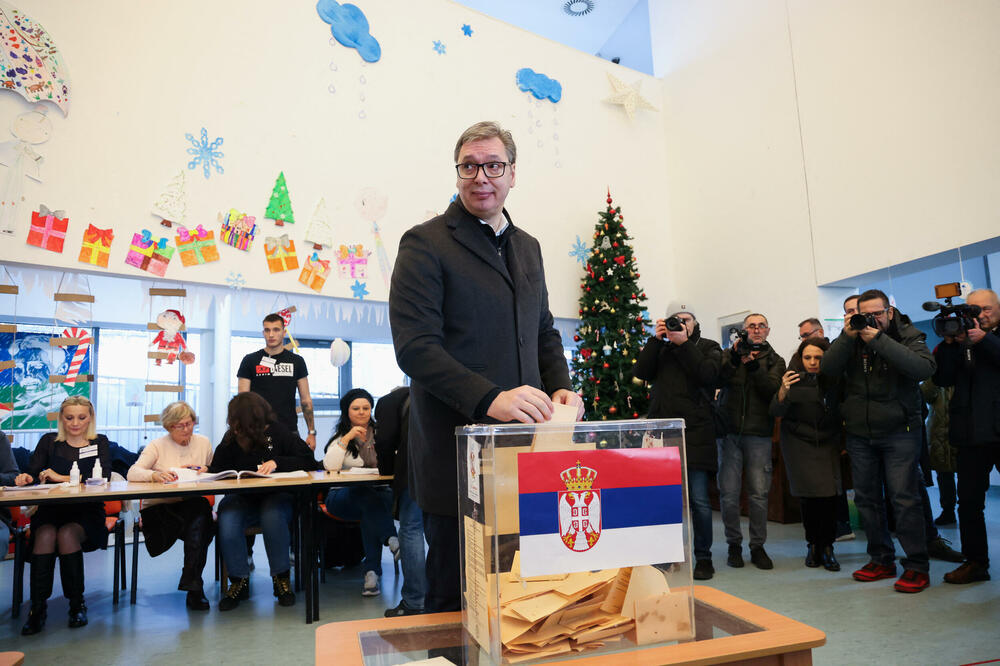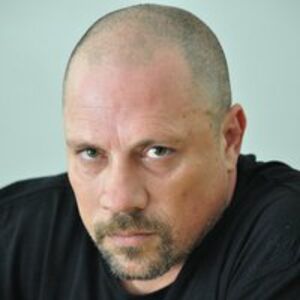At this time exactly thirty-three years ago, on the eve of the New Year in 1991, the second round of the first multi-party parliamentary elections in Serbia ended the democratic transformation of the dying Yugoslavia. The elections in Serbia were the last in that historic year, after the first free elections in Slovenia and Croatia, organized in April 1990, were followed by elections in Macedonia and Bosnia and Herzegovina in November, and in Montenegro at the beginning of that December.
Today, thirty-three years later, little has changed in the political landscape of the former Yugoslavia. In Croatia, for example, all that time, until today, the HDZ of Franjo Tuđman is in power, the same party that celebrated victory both in those historic first elections and in the last one - and which will celebrate victory in all elections until the end of the world - with only two breaks, when power was briefly handed over to the SDP, the same party that followed it in the table of the first elections, which was in second place in the last elections, and which will be in second place in the next and all the others elections until the end of HDZ.
It is similar or the same in Bosnia and Herzegovina, where all those years, with the successful seconding of the eternal social democratic losers, the same three national parties, Alija Izetbegović's SDA, Tuđman's HDZ and Radovan Karadžić's SDS - from which Milorad Dodik's Alliance of Independent Social Democrats emerged - but also in Macedonia, where even after thirty-three years, power is shared by the same two parties that shared it in the long-ago first elections in 1990: VMRO-DPMNE and SKM-Party of Democratic Transformation, i.e. today's Social Democratic Alliance of Macedonia. And little has changed in pioneering, revolutionary Slovenia, where Janez Janša, a veteran of the first elections, is to this day either the prime minister, i.e. the current government, or the leader of the opposition, i.e. the future government, and only Milo Đukanović is more eternal and immutable than him. , currently two-time president of Montenegro and four-time prime minister. Even in Kosovo, thank you for the question, the ruling-opposition Lidha Demokratike e Kosovës of long-ago Ibrahim Rugova is alive and well to this day.
If a certain amount of time had passed at all, a deliberate traveler who would have headed to the Balkans in December 1990 in the time zone of December 2023 would have noticed only by the beautiful, bronze complexion of Franjo Tuđman and his friends: what of copper and tin, what of flesh and blood, Tuđman and Izetbegović and Karadžić and Rugova and Đukanović and Janša are still alive, healthy and loud here.
Only in Serbia would a time traveler not recognize or understand anyone or anything.
In the dead, flat and desolate Yugoslav political landscape, Serbia, in fact, looks like a lively and exciting paradise island of parliamentary democracy, where old parties die out with the speed of mobile phone chargers, and new ones spring up like atomic mushrooms before acid rain: of the forty-four parties that took part in the first democratic elections in that prehistoric December of 1990, today there are only six of them formally, three of which - SDA Sandžak, the Democratic Union of Vojvodina Hungarians and the Democratic Union of Croats in Vojvodina - are only small, decorative minority parties, and the other three on the in the historic first elections, almost seventy percent of the votes were divided: the Democratic Party, the Serbian Reconstruction Movement and the Socialist Party of Serbia of Slobodan Milošević, who at that time occupied the Serbian Parliament with almost half of the votes.
Thirty-three years later, however, those glorious parties are but pale shadows of their former glory. In the parliamentary elections just held, Milošević's Socialist Party of Serbia won barely a few mandates and announced its sad and final end, and their sworn enemies from the ruling Democratic Party, which disappeared somewhere in the inaccessible wastelands of ballots, ended up even worse. in a pack of thirteen parties from the coalition Serbia against Violence, alongside such parliamentary giants as the United Trade Unions of Serbia Sloga or the People's Movement of Serbs from Kosovo and Metohija Fatherland.
A confused time traveler turns around, and Slobodan Milošević also turns to God in his grave in the Pozarevac courtyard. Vožd spins like a merry-go-round at a fair in Šabac - power in his Serbia was taken with a shovel by some kind of coalition, Serbia must not stop, and Vožd reads the names of parties that not only did not exist in 1990, but were not even on the map in 2006 ., while Sloba was still alive at all: at the head of the all-ruling Serbian Progressive Party of a certain Aleksandar Vučić, under his mantle some Social Democratic Party of Serbia, Socialist Movement, Solidarity and Justice, Serbian People's Party, People's Peasant Party, Healthy Serbia, Serbian Left and The party of modern Serbia, and among them in the corner - that's where Sloba finally plays with a set smile on her face - Drašković's small, this much Serbian movement of renewal.
And while in the rest of dead Yugoslavia still, ever since the happy nineties, the executive power is divided between concrete nationalists and reformed communists, so it is already certain that until the end of the world - or at least until the end of this part of it - the elections will be won by various some kind of HDZ, SDA or VMRO-DPMNE, with even more various and some kind of radioactive mutations of reformed communists, wonderful Serbia looks like a research laboratory from which new parties, new faces, new political ideas and completely silly revolutionary new concepts emerge every day.
And then what are the parliamentary elections in the distant, science-fictional year 2023, what does Aleksandar Vučić, as you said his name is, offer in such an exciting Serbian future, with which he is challenged by the famous Serbian opposition, the most famous of all world oppositions, which are they new political ideas and revolutionary new concepts? Did Serbia advance the Swedish-Chinese political model and establish some kind of completely new, Serbian capital communism, did it discover the secret of a just society for the twenty-first century, some kind of absolutist enlightened humanistic polydespotism, did it perhaps in that incredible meantime intersect with the historical with the left-right paradigm and classical parliamentary democracy in general, and seduced, what do you know, the revolutionary anti-democratic rule of the minority mind, or with the unimaginable progress of technology, the first in the world to introduce real-time referendum ad-hoc democracy? Are the government and the opposition arguing about the prices of public transport and free teleportation for pensioners, or the constitutional regulation of the right to happiness as a fundamental human right?
No: the topics on which the elections in the distant and exciting, science-fictional year 2023 in the Republic of Serbia are threatened are the Serbs across the Drina, West-East, Europe-Russia, the media, censorship, TV Bastille, political corruption, one-party monopoly, the treacherous heel motorcade, police brutality, glorious history, world conspiracy against Serbs, local tycoons and foreign ambassadors, and first and foremost the mother of all topics, the most expensive Serbian word - Kosovo.
In vain, there are new parties and new faces, all thirty-three years in vain: Kosovo has been a sovereign and independent state for more than fifteen years, in the meantime they have organized their own six parliamentary elections there, they are playing the qualifiers for the European football championship and with the song "Oj Kosove" are performing at the Eurovision Song Contest in Sweden, and the Serbian government and the opposition this December, just like in 1990, swear by Kosovo as the heart of Serbia, and accuse each other of wanting to sell the sacred Serbian land.
And then, and again, as in 1990 - and as in all Serbian elections in the history of the world and century - election theft, forged ballots, students on the streets, blocked boulevards, burning containers, police snot, batons, tanks and transporters, "Go to Kosovo!", beaten and arrested demonstrators, and on the other side the Holy Synod and buses from the province, ladies with cold undulations on their heads and pensioners with pictures of the Great Leader, Politics as an entertainer with posters of Saint Sava and echoes and reactions of loyal Serbs, and good, old RTS like Disney Channel.
And while in the rest of blissfully rested Yugoslavia, the same boring parties from the 1990s go to the elections today as if for coffee - and on them, just like over morning coffee, they combine and arrange coalitions dealing with migrants, corruption, demography, the exodus of the population, resolutions on Ukraine and Palestine, violence against women, the rights of the LBGT community, the extraction of money from European funds and the strict regulations of the EU on energy sustainability - until then, in the exciting new Serbia, always new parties and always new faces go to the same historical elections in December 0,2 and argue about who will as a bigger Christian and Serb, rather to Kosovo: the leader of the opposition would go on a hunger strike because of the stolen elections, but he must not because his faith forbids it, and the only party that clearly and loudly acknowledges the reality of a lost and independent Kosovo received exactly XNUMX percent of the vote.
The world has not seen a more senseless, stupid and wasted thirty-three years since that budding young leader of the opposition from Bethlehem let himself be crucified for a better and more just world.
Bonus video:





